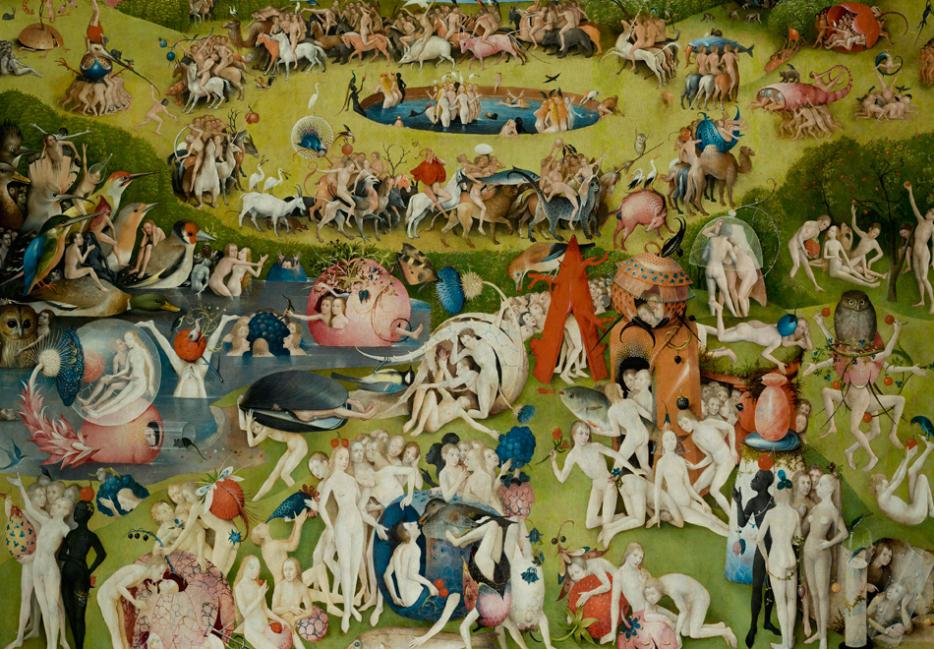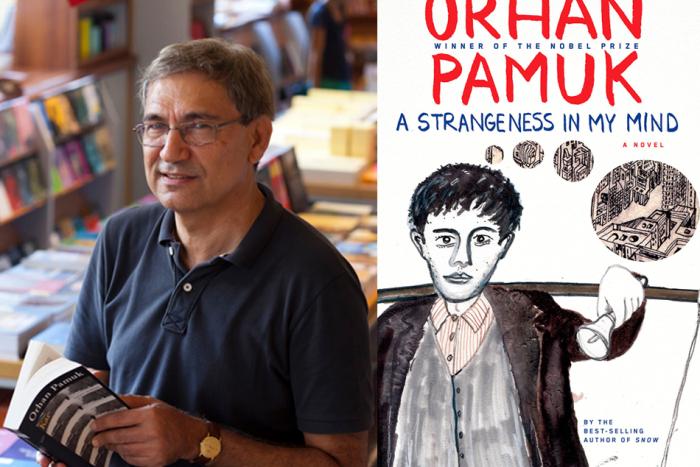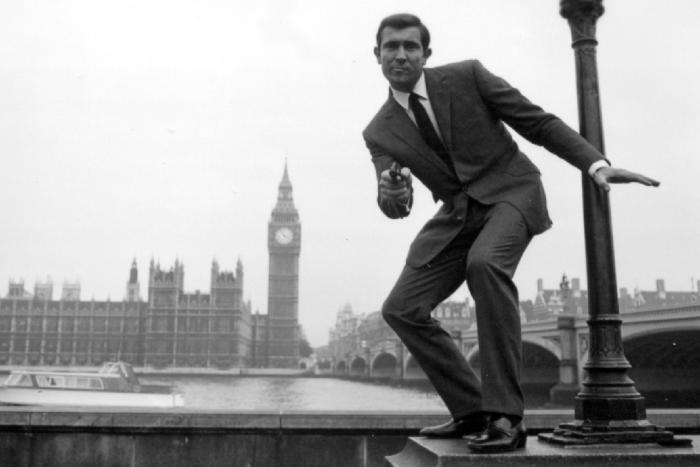I recently found the essay that I wrote as part of my application to divinity school six years and one spiritual lifetime ago. The power of the liturgy was the framework through which I confessed a faith that was unselfconscious in its candor and exuberant about church pageantry. It is thick with faith in the sensory and salvific strengths of Christian worship and I meant every word:
We spoke in lost languages and drank blood from bejeweled goblets. There was choreography. Our worship echoed across latitudes as believers rose around the world, bells older than any living person calling them to worship in twenty-four distinct dawns. The service celebrated tragedy and miracles in successive breaths. The strength of our numbers made our praise audible in Heaven. We were singing with and for the angels. I was certain of it. But more to the point, I am still quite certain of it.
I recognized myself in the impulse to thrust the feeble extravagance of the material world skyward. It was why I spent my time reading religious poetry and adorning my apartment in various iterations of Hieronymous Bosch’s The Garden of Earthly Delights triptych: I wanted to find a place where Heaven and Earth could meet. This place, of course, was grace.
Definitions of grace have been refined and amended often over the centuries. Many understandings of it bleed into one another in the human imagination, mixing with emotions and resulting in grace being looked at often less as a matter of doctrine than of nostalgia. But the catechism defines grace as “favor, the free and undeserved help that God gives us to respond to his call to become children of God, adoptive sons, partakers of the divine nature and of eternal life.” Grace manifests as both God’s disposition and God’s action; it is an atmosphere of salvation for humanity to dwell in, but can quickly be made manifest and intervene in human affairs.
Flannery O’Connor recognized our failure to identify grace when she wrote, “Our age not only does not have a very sharp eye for the almost imperceptible intrusions of grace, it no longer has much feeling for the nature of the violences which precede and follow them.” I read this line in my early twenties when I was making my way through O’Connor’s collected works and intentionally widened my gaze in search of grace at work. I imagined it as a substance that blanketed creation, an unearned pardon on top of an already abundant and generous gift rendered invisible by being taken for granted. It was like the Dark Matter taking up most of the universe, or even the carbon particles in our own corner of the galaxy, but if I watched closely enough, I could see it act on objects.
I write this missive, however, from the dark inside the absence of grace. Or, more accurately, I write it in the absence of whatever warm nostalgic comfort came with believing in the existence of grace. Its purpose is to explain what it felt like when I came to believe in sin but not in God. Its central difficulty is how to appropriately mourn that which was always a kind of ghost. You can’t miss carbon if you’re not dead. I write it as an act of hope on behalf of myself; I want to stumble upon it at some later point and recall that this was a temporary despair at facing my own finitude. Its intended recipient is a fiction, of course—a future version of myself to whom the years have been gentle, preserving my appearance and finding me returned to the warmth and light of grace when I open this dispatch from the other side of salvation. I take heart in the words of the poet and professor Johann Peter Lange, who wrote in 1868 that there is “no fall so deep that grace cannot descend to it” and “no height so lofty that grace cannot lift the sinner to it.” I cannot predict how time will treat either my face or my faith, but I can allow myself to hope that I will know again that splendid fear that God is present, to be descended to once again.
*
While I was searching for grace in O’Connor’s work, I was dating a sycophantic Marxist with a beard and a snide streak. He noticed the row of O’Connor’s books on my desk after we had just slept together. He asked what I liked about them, flipping one upside down and right side up again too fast to either take in the cover art or read the back copy. I paused and said, “I think me and Flannery are having the same fight with God’s mercy.” It was a vulnerable confession and a true one, but he replied with a mean-spirited laugh. He began an unsolicited tirade about how neither mercy nor grace could be seen as gifts because God’s very design of us made them necessities. He created sin; it was no great favor to create redemption. Though I did not find a moment to say so in his screed—and don’t know that I would have had he taken a moment to breathe and to listen—I believed humans to be in a constant state of his creation of us, forever being made and unmade into and out of his image.
Whatever puny god these men believe in that makes human instruction rather than divine intervention the pathway by which people recognize grace again is not the god I miss. Don’t they know that such requests for my faith to be restored ought to be sent toward the heavens and not into my inbox?
His impromptu polemic came finally to an end. I said, “I’m just grateful that there’s something light that can find its way even into the darkest corners of myself,” without looking at him. He chortled again and said, “Your god cut out your eyes and you’re grateful for the stick he gave you to stumble with?” The volume and disdain of his words were exhausting so early in the morning. I simply said, “Yes.” He rolled his eyes. He left and I sat alone in the rattling aftershock of his outburst and the door slamming shut. They were two violences on either side of a moment of grace so undetectable that it has taken me six years to see my refusal to fight as the divine empowering me to silence more than my pride suppressing me to it.
My greatest fear in writing this is not admitting my lack of faith but being exposed to the weak faith of others. I have written before about my profound love of Christianity but the absence of God in my life, and I was bombarded with emails from men admonishing my unbelief as if I had any control over it—and worse, having the hubris to believe they would personally shepherd me back to the faith. Whatever puny god these men believe in that makes human instruction rather than divine intervention the pathway by which people recognize grace again is not the god I miss. Don’t they know that such requests for my faith to be restored ought to be sent toward the heavens and not into my inbox?
The only comforting words I’ve actually ever gotten in my inbox were after I sent an email to a religious literary scholar. I told him how much I admired his work because despite having no faith, I saw his reverence to the topic as the last hope for religious authenticity in America. He thanked me for my unprompted words and ended by saying, “And please recall that apostates honor the Church as heretics do not. Heretics do it the disservice of misinterpreting its Message, while apostates pay it the huge compliment of rejection. And of course the one who rejects can still be come the one who accepts, as the heretic cannot!” He wrote with warmth and hope without sacrificing any of his conviction. That was a man of God.
*
The ways in which we talk about God’s omniscience fail to account sufficiently for God’s omnipresence. “He’s got the whole world in his hands,” we sang as children, placing God at a distance from the very start. God is portrayed as a reader of minds rather than as an inhabitant of them. Sylvia Plath wrote in a letter, “I talk to God but the sky is empty,” which I take less as evidence of disbelief in grace than misguided searching for it. God’s reign over creation is not from above it but from within it, dwelling in every atom and absence in existence. “It is when we notice the dirt that God is most present in us; it is the very sign of His presence,” was how C.S. Lewis put it, and I find this apt but incomplete. Dirt can be seen and so much of what God is remains unseen, even though he is present.
I had faith that God not only existed but that he resided among us. I felt it in my chest and my breath, as inescapable as the temperature of the air. I didn’t know what to do with such abundance but knew even less what to do with its absence. The vacancy left by God is felt not like grief at losing a loved one but like the pain of losing a limb. The trauma of physical suffering is exacerbated by disorienting new asymmetry and a sudden incapacity to move about the world in a rhythms that are familiar to us. My own loss of God occurred soon after I got to divinity school. I still cannot decide if that was the least likely of places for it to happen or really the only place in the world where it was possible.
I often make jokes at my own expense about the fact that I went to divinity school on a whim to escape the vices that controlled my life in my early twenties. “It was a very expensive exorcism,” I say time and again, hoping that I haven’t made the joke to my present audience already. It is easier to deflect attention from whims than from desperate and intentional hope. I did not have a religious upbringing but became pious suddenly and fervently as a teenager. My overactive moral imagination sought a shape for the universe and found the cross. I spent the first seven years of my adulthood in New York City, where hedonistic impulses constantly butt heads with my holy ones. I worked jobs that I hated and had sex with men that I hated more. I was difficult and forgiven too often for it. So when I threw myself into church life, I craved a higher-functioning faith, one that could act on my gratitude for God’s grace with more than paralyzed despondency and reliance on alcohol and narcotics to numb the pain of forgiveness. I endeavored to excise a handful of unmanageable but not-yet-deadly demons and hoped that the practical faith of aspiring clergy was an airborne thing I could catch. But as I sat in the orientation meetings and worship settings designed to bring us close together, I withdrew.
I found their God defanged by anthropomorphism and modernity’s discomfort with the concept of sin. I found God rewritten as my friend instead of my author, my confidante instead of my judge. And in my prideful efforts to resist what I saw as the hollowness of much of the faith I found, I stumbled upon the dangerous conviction that if God is not as I understood him then God is not at all. I allowed it to linger in my mind for long enough to establish a grip that it has not yet released. Most of what I heard there felt so empty that I cannot recall much of it, but there is a single theological conversation I had in the midst of my faith draining from me that I carry with me today.
One night, a dear friend admitted that she believed in Hell. I asked her what it was and she said, “Hell is the absence of God.” To this day, it is the most feasible definition I have ever heard.
*
There are those who never catch faith of any kind—those for whom the God-loss is a non-issue. But losing belief in God did not unbuild or even destabilize my conception of the shape of a world informed by my belief that grace was the primary particle holding the universe together. I still understand existence as a competition between good and evil. I believe there is a redeemable rottenness at each of our cores and I still call it sin. I find useful the idea that even Heaven cannot escape the terror of war forever. My worldview has all the component parts of a Christian but no God to animate it with purpose. It is an evacuated city, its structures rendered useless because there is no one there to use them.
God did indeed come bearing the weight of a world in chaos, but he set it upon me in a space unencumbered by gravity. I knew that the load was there but God’s grace rendered it a tranquil, weightless catastrophe. Now it is just a world and not just any world: a rapidly dying one.
I have been told to take heart that I am in good company: many writers’ best works were born of their entanglements with the holy. Though her Catholic faith appears unflinching across her brutal and clever prose, Flannery O’Connor admitted often to struggling in her understanding of God’s grace. The Dostoevsky catalog is almost entirely a wrestling match between him and the Holy Spirit. You can scarcely turn a page in Toni Morrison’s work without stumbling upon a symbol of Christianity, subverted and challenged, but still beheld reverently. I have been told more than once that my writing has scriptural qualities by editors working with me on stories that have nothing to do with religion. I still find more compelling images in the Bible than anywhere else. On the occasions that I write fiction, I map my character arcs based on proximity to God. Even in my susceptibility to delusion, however, I harbor no secret belief that I might ever near the literary prowess of those I have mentioned, nor do I especially need to. I would be perfectly content to produce mediocrity if it meant the return of my familiar ghost.
*
Though I find pleasure in reading the authors who grapple with faith, the distances created by time, geography, and by the calculations made in the prose itself make it hard to find any real solace in them. It is difficult to find fellow travelers in my own life who speak of God in language I relate to on this now faithless journey. For many, God revealed himself only as the weight of the whole world. To be rid of him is to be, at last, unburdened. For others, God was always so exceedingly human in his manifestation that to lose faith was a loss akin to drifting apart from a friend. It was difficult but not devastating.
In my experience, God did indeed come bearing the weight of a world in chaos, but he set it upon me in a space unencumbered by gravity. I knew that the load was there but God’s grace rendered it a tranquil, weightless catastrophe. Now it is just a world and not just any world: a rapidly dying one.
“It hurts just as much as it is worth,” is how a friend once described grief to novelist Julian Barnes. Barnes is not a theist, but he once opened a book with the line, “I don't believe in God, but I miss Him," and so I am drawn often to him as a possible fellow traveler in this. But I don’t know if the worth of knowing grace can ever be quantified this way. Its value cannot be measured anymore than that of sunlight: its value is the whole of the universe. Grief too is a process of letting something go, while mine is still mired in a hope that something will return. There is evidence among my literary heroes that it is possible. “Faith comes and goes. It rises and falls like the tides of an invisible ocean. If it is presumptuous to think that faith will stay with you forever, it is just as presumptuous to think that unbelief will,” O’Connor wrote in her letters. “He who has not God in himself cannot feel His absence,” wrote Simone Weil in Gravity and Grace. But feeling absence is not a guarantee that there will come a time for presence again.
*
There are three tattoos that I have considered getting. I think of them more often now than when I had faith. One is the Tree of Life as painted in the left panel of The Garden of Earthly Delights. It is often forgotten, while its more villainous twin, The Tree of the Knowledge of Good and Evil, revels in the moral mythology spotlight. What’s always been more interesting to me than the serpent’s temptation is that, prior to it, Adam and Eve had the option of choosing to gain consequence-free immortality from the Tree of Life. There was a time when we could choose immortality without salvific grace. The second is a single spiral to represent “the widening gyre” wherein W.B. Yeats’ “falcon cannot hear the falconer” in his famous poem, “The Second Coming.” The falcon is widely acknowledged as a symbol for humans falling into a growing vortex, unable to hear the voice of God. I thought of getting the falcon, but it just isn’t an especially lovely bird. The third is the line, “Go warn the children of God of the terrible speed of mercy,” from O’Connor’s The Violent Bear It Away. Mercy as a force that requires warning is a message I can get behind.
I think of these three ideas not as variations on the same theme but as a narrative. The three together are the lost opportunity to turn away from sin, the distance from God’s grace that sin has taken us, and the impending arrival of a forgiveness of sin that is so pure that it registers as disaster. I think of how I courted that very disaster in my divinity school essay when I explained that I wanted “to teach that God’s love is something they can take with them when they must leave other things behind. From one house to another. From year to year to seemingly endless year. From solitude to blessed company and back.” If this and all of my writing on religious faith that followed were intended to record theological memories, perhaps getting tattoos would be intended to create theological scars. Maybe I think if pouring the words out through my fingertips has been no particular relief then I should let them soak violently into my flesh, memorials to past beliefs that I might resurrect in me by bearing them on my body. My hesitations are both cosmetic and cosmic, I’m scared of them becoming ugly and of their messages becoming even more unreal. They might bring me closer to the light of grace, but they might show me just how much deeper I can fall.






